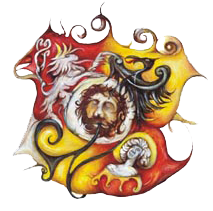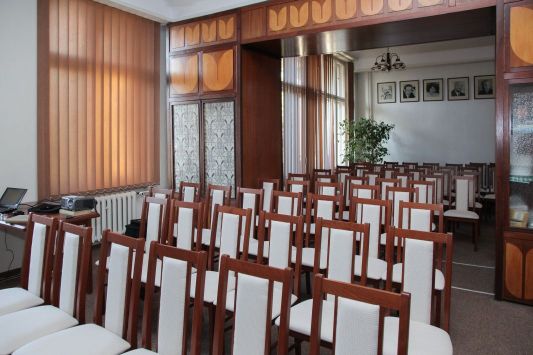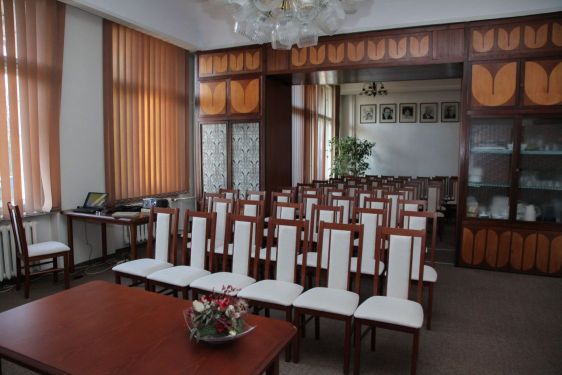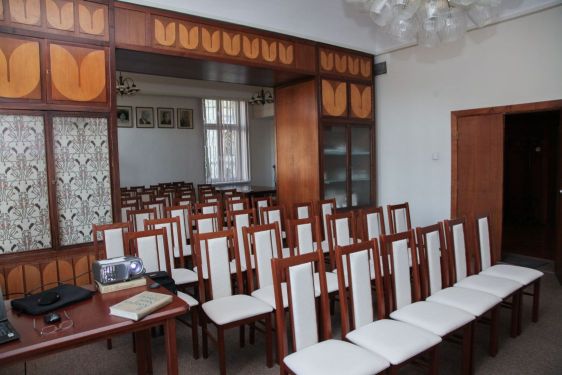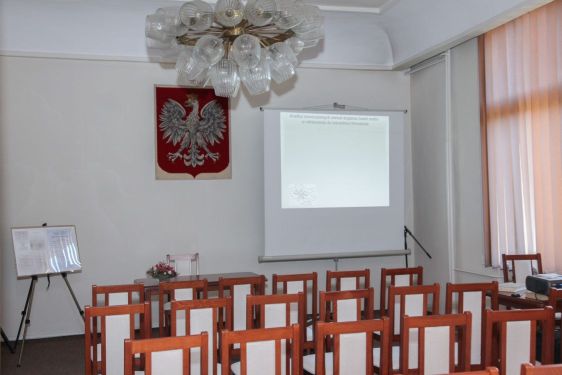KOMISJA CHEMII I FIZYKI
W BIOLOGII I MEDYCYNIE
ODDZIAŁU POLSKIEJ AKADEMII
NAUK WE WROCŁAWIU
uprzejmie zaprasza
na posiedzenie naukowe, które odbędzie się w
poniedziałek 27 listopada 2023 r. o godz. 15.00
w siedzibie Oddziału Polskiej Akademii Nauk we Wrocławiu,
ul. Podwale 75 (sala konferencyjna – parter).
Podczas posiedzenia wykład pt.:
"Biogenic synthesis of nanomaterials for combating pathogenic microbes"
wygłosi:
Dr. Gharieb S. El-Sayyad
Drug Microbiology Lab., Drug Radiation Research Department, National Center for
Radiation Research and Technology (NCRRT), Egyptian Atomic Energy Authority (EAEA),
Cairo, Egypt and Microbiology and Immunology Department, Faculty of Pharmacy,
Galala University, Egypt
oraz wykład pt.:
"Unlocking the power of endophytic fungi as promising sources of bioactive"
wygłosi:
Dr. El-Sayed R. El-Sayed
Plant Research Department, Nuclear Research Center, Egyptian Atomic Energy Authority,
Cairo, Egypt and Department of Food Chemistry Biocatalysis, Wroclaw University of
Environmental and Life Sciences, Wrocław, Poland
Title: Biogenic Synthesis of Nanomaterials for Combating Pathogenic Microbes
Abstract:
The rise of multidrug-resistant (MDR) pathogens has become a global health threat and an economic burden in providing adequate and effective treatment for many infections. This large-scale concern has emerged mainly due to mishandling of antibiotics (ABs) and has resulted in the rapid expansion of antimicrobial resistance (AMR). Nowadays, there is an urgent need for more potent, non-toxic and effective antimicrobial agents against MDR strains. In this regard, clinicians, pharmacists, microbiologists and the entire scientific community are encouraged to find alternative solutions in treating infectious diseases cause by these strains. In its “10 global issues to track in 2021”, the World Health Organization (WHO) has made fighting drug resistance a priority. Infectious diseases continue to attack human beings as emerging and re-emerging infectious diseases, opportunistic infectious diseases and infection with drug resistant microorganisms. Discovering new antibiotics and chemically modifying existing antimicrobial drugs were the main strategies to address microbial resistance. However, no major classes of antibiotics were introduced between 1962 and 2000 and there were no successful discoveries of novel antimicrobial agents since 1987. To escape a scenario whereby the healthcare community is forced back to the pre-antibiotic era, there is a demanding for novel or alternative antibiotic therapy. This speech was conducted with the aim of examining the effect of green-synthesized antimicrobial nano-materials and/or nano-drug carriers against the MDR microbes as a potential alternative treatment option to the challenging infectious pathogen in the hospital settings.
Title: Unlocking the power of endophytic fungi as promising sources of bioactive
Abstract:
Plants are well known to live in close association with microbial populations. In particular, the symbiotic associations with microorganisms such as fungi and bacteria called endophytes. A fungal endophyte spends a part or whole lifecycle colonizing inside healthy tissues of its host plant, typically causing no apparent symptoms of the disease. These endophytes represent an untapped pool of valuable bioactive metabolites. Moreover, they are more active than their free counterparts; so, they are recognized as sources of novel bioactive compounds with potential applications in agriculture, medicine, and the food industry. As such, they are promising candidates in the field of nanotechnology.
Przewodnicząca Komisji
Chemii i Fizyki w Biologii i Medycynie
Dr hab. Hanna Pruchnik

